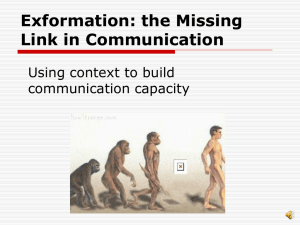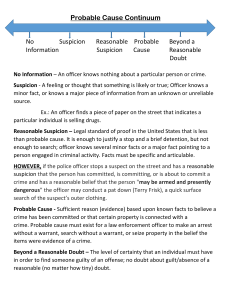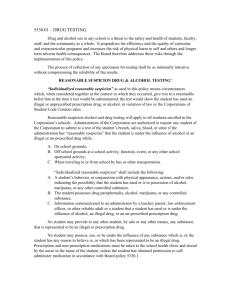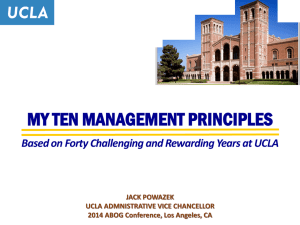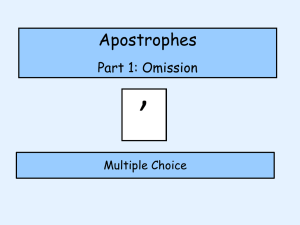Negative emotion words - University of Wisconsin–Madison
advertisement
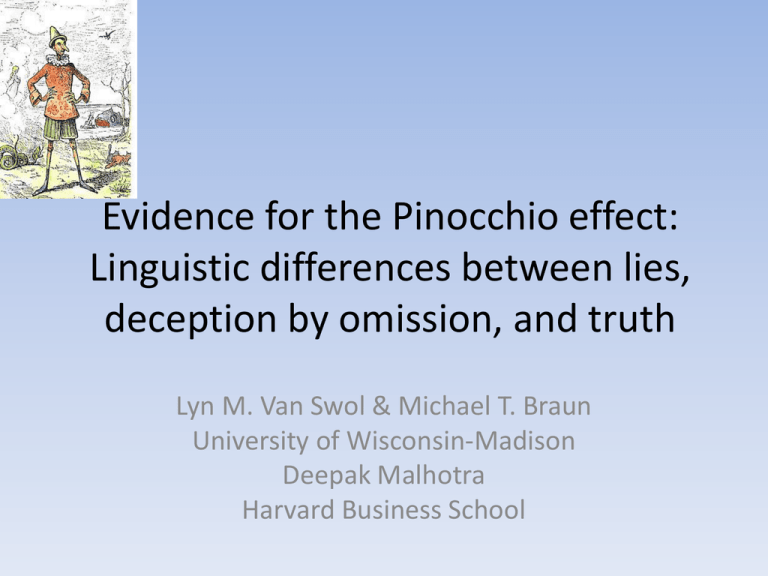
Evidence for the Pinocchio effect: Linguistic differences between lies, deception by omission, and truth Lyn M. Van Swol & Michael T. Braun University of Wisconsin-Madison Deepak Malhotra Harvard Business School Types of deception • Bald-faced lie • Omission Lie • A: Um, I’m giving you a dollar fifty. • R: You’re giving me a dollar fifty. How much did they give you? • A: Three dollars. • R: You’re lying. You know why? • A: Why? • R: Because I heard her say she gave you five bucks. • A: Well, that’s part of her experiment, she’s trying to fuck with you. Probably shouldn’t say that with the camera..whatever. Omission • A: Okay, so I’m allocating 10 dollars to you, so I don’t know if you want 10 dollars or not. • R: That’s fine. • A: I don’t know if you can deal with that. Okay, so how are you doing? Omission • • • • • • • • • A: I’m giving you ten. R: Ten bucks? So they gave you 20? A: Ten is more than 7.50. So I figured… R: Yeah. The only thing I’m interested in is if they gave you thirty or not. A: Only if what? R: The only thing I’d have a problem with is if they gave you 30 or not. And I know you wouldn’t dick me over, so. A: And of course, we’d all figure this out later. R: What? A: We could figure this all out later. Non-strategic linguistic cues • • • • Pronoun use: first person and third person Negative emotion words and suspicion Swearing and suspicion Higher cognitive load: concreteness, sentence complexity, type-token ratio, connectives Strategic linguistic cues • Word count – Pinocchio effect: greater words when reality cannot be verified/no concealment goals – Omission and reduced word count: concealment goal • Causation words Modified ultimatum game • • • • Endowment amount Roles: Allocator/Recipient Recipient only has knowledge of range of values Allocator allocates endowment between self and recipient • Recipient can accept or reject offer • If rejected, allocator gets nothing and recipient gets a default amount of 25% of endowment • Interactions videotaped and transcribed Method • 102 dyads • Given either $5/$30 endowment • LIWC: Linguistic Word Count Inquiry software Lies (n = 7) Variable Omission (n = 26) Truth (n = 69) M M M 8.53 5.67 6.32 0.94 0.00 0.17 Negative affect (%) 1.10 1.04 0.54 Profanity** (%) 0.27 0.00 0.05 344.12 372.60 353.19 Words before verb 1.76 1.16 1.16 Type token ratio 0.79 0.91 0.90 Connectives 69.40 54.44 58.32 First person singular (%) Third person** (%) Concreteness# Note. * p < 0.05, ** p < .01 # Higher numbers indicate more concreteness. Lies (n = 7) Variable Omission (n = 26) Truth (n = 69) M M M Word Count** 70.14 31.12 41.58 Causation* (%) 2.50 0.43 1.31 Money** (%) 5.35 1.82 1.05 Note. * p < 0.05, ** p < .01 Role of suspicion Lies Variable Omission Truth M M M Suspicion 0.64 0.00 0.23 No suspicion 0.00 0.00 0.18 Suspicion 62.33 31.87 100.11 No suspicion 76.00 30.09 32.50 Suspicion 22.17 40.03 76.95 No suspicion 104.82 74.09 55.82 Profanity (%) Word count Connectives Multinomial logistic regression to predict offer type Deception Type = Lie Third person pronouns (%) B = 0.95* Number words (%) B = 0.45** Note. * p < .05, ** p < .01 Conclusions • • • • Importance of context with word count Without verifiable reality: Pinocchio effect With concealment goal: reduced word count Replicated past research with third person pronouns • Tentative results about profanity • Negative emotion words and suspicion
